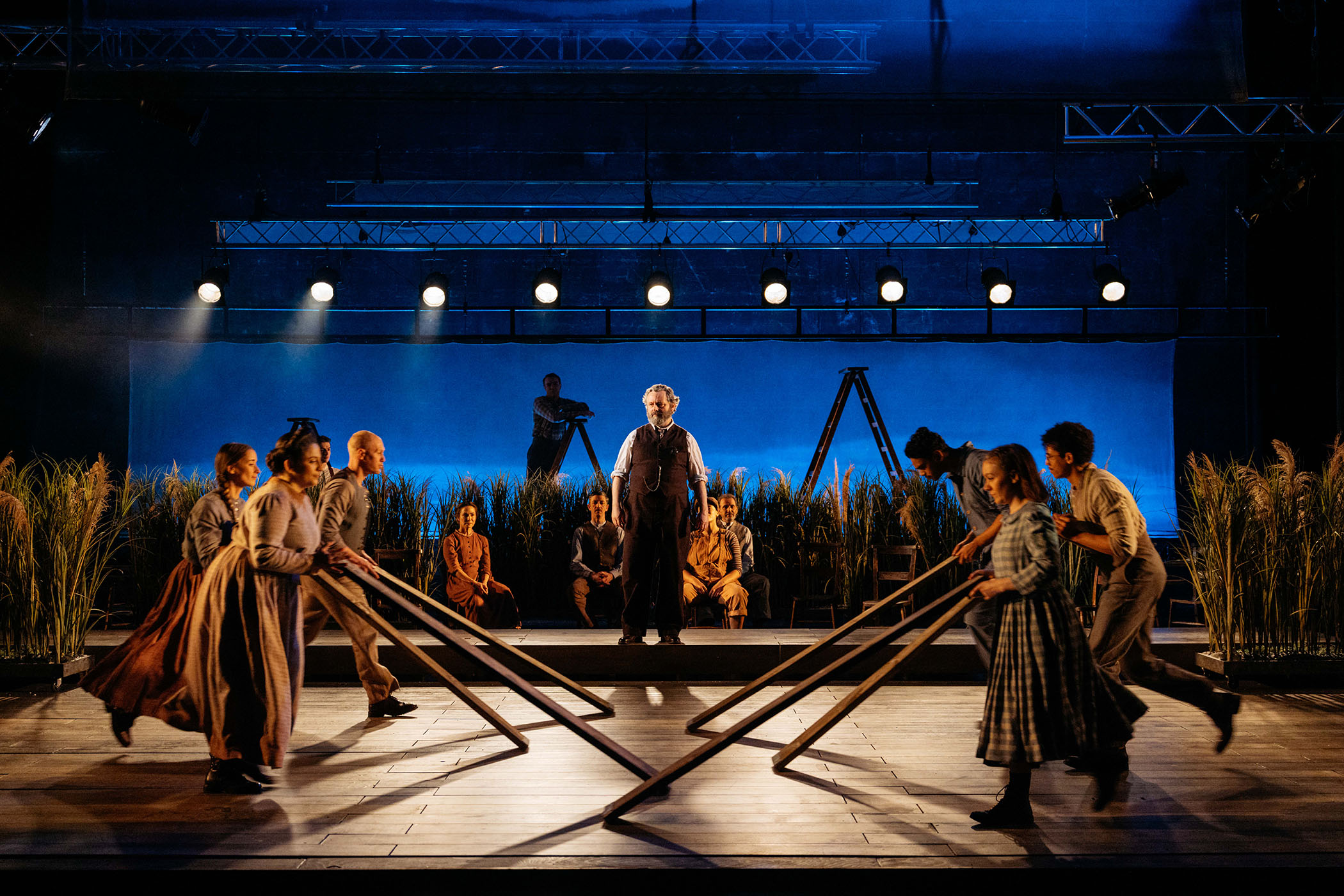A mother’s place is in the wrong. We rarely forgive our mothers; when we become mothers, it seems, we rarely forgive ourselves. On stage at the National Theatre this summer, Rosamund Pike channels every “mum guilt” trope as Jessica, a judge who realises she has failed to teach her son the values of sexual consent that she enforces in her courtroom.
Torment ensues. Did she talk too little about porn? Too much? Was it all because of that one time she took a phone call from work and lost him in a playground?
If such contrivance sounds familiar, it’s because Inter Alia is the follow-up to Prima Facie, playwright Suzie Miller’s previous hit about a barrister raped by a colleague. But where Prima Facie focused on the failings of the legal system, Inter Alia is concerned with how we parent and how we fail. Or rather – because why pass up a good chance to torture a woman? – how mothers fail.
Miller’s pedigree and Pike’s star-power are enough to ensure that Inter Alia will be the play of the summer, despite any caveats from critics. The literary event of the summer also observes mothers whose sons are accused of rape.
The Benefactors is Belfast teacher Wendy Erskine’s debut novel, but previous accolades for her short stories have heightened literary anticipation. Publishers were right to be excited. The Benefactors is a manifesto for class warfare; a study of sex and money; and a portrait of Belfast, seen through the 50 unnamed characters who voice the exquisite vignettes intercutting the main narrative. That central narrative, however, is the story of three wealthy mothers who join forces to neutralise Misty, a young girl accusing their sons of rape.
Men of generation X don’t talk to their sons about consent, because they’re terrified they never learnt the right rules themselves
Men of generation X don’t talk to their sons about consent, because they’re terrified they never learnt the right rules themselves
Like Inter Alia, this book is concerned with parenting – and the parents who fail consistently and visibly are its mothers. Like the play, it starts with a liberal feminist mother – soon to be proved a hypocrite – watching missed calls pile up on her phone while she tries to focus on her socially idealistic job. A true emergency? No, in both cases, an entitled teenage son demanding she locate his shirt for a party. But The Benefactors invites us to blame a mother for indulging her son’s 24/7 demands; Inter Alia for denying them.
Like Prima Facie, which drew its true power from the virtuosity of actor Jodie Comer, Inter Alia is a gift of a role. Unlike Comer’s play, it is not technically a monologue – Jessica’s decent-ish husband (Jamie Glover) and insecure teenage son (Jasper Talbot) orbit on her periphery – but it is her story, not theirs. This should be a welcome choice on a National stage: the canon could always use more female protagonists. Yet although Pike is terrific, it allows Miller to avoid the tough questions about how men shape each others’ worlds.
Jessica’s son, Harry, is utterly convincing in his early denial, because we only see him through her eyes. When she makes a fleeting attempt to explore his online world, we see only her reaction, barely any of its content. (For a richer exploration of the “manosphere”, James Bloodworth’s new book, Lost Boys, is essential reading.) Nor do we ever see father and son alone together.
Eventually, Jessica briefly asks the question I’d been silently shouting: why was Harry her responsibility? Why did her husband never talk to him about consent? His answer, a flash of insight from Miller, gives us a glimpse of what this play might have been. Men of generation X don’t talk to their sons about consent, because they’re terrified they never learnt the right rules themselves. It’s a breath-catching moment, rushed and lost.
The Benefactors similarly relegates these lost boys’ fathers to the background. This is a book with clear heroes and villains: the victim’s stepfather is a working-class saint; two of the mothers are monsters. In many ways, this doesn’t matter, because Erskine packs her intersecting vignettes with richly competing perspectives.
Newsletters
Choose the newsletters you want to receive
View more
For information about how The Observer protects your data, read our Privacy Policy
One, about a birth mother tracked down by her son, says more about misogyny in three pages than anything in Inter Alia. Yet like the play, it starts with an incident of male violence, then places women on the rack. Mothers may always blame themselves. It doesn't mean the rest of us should, too.
Photograph by Manuel Harlan/National Theatre



